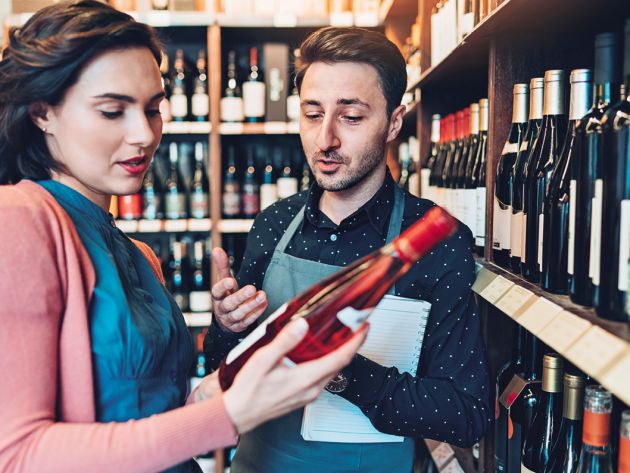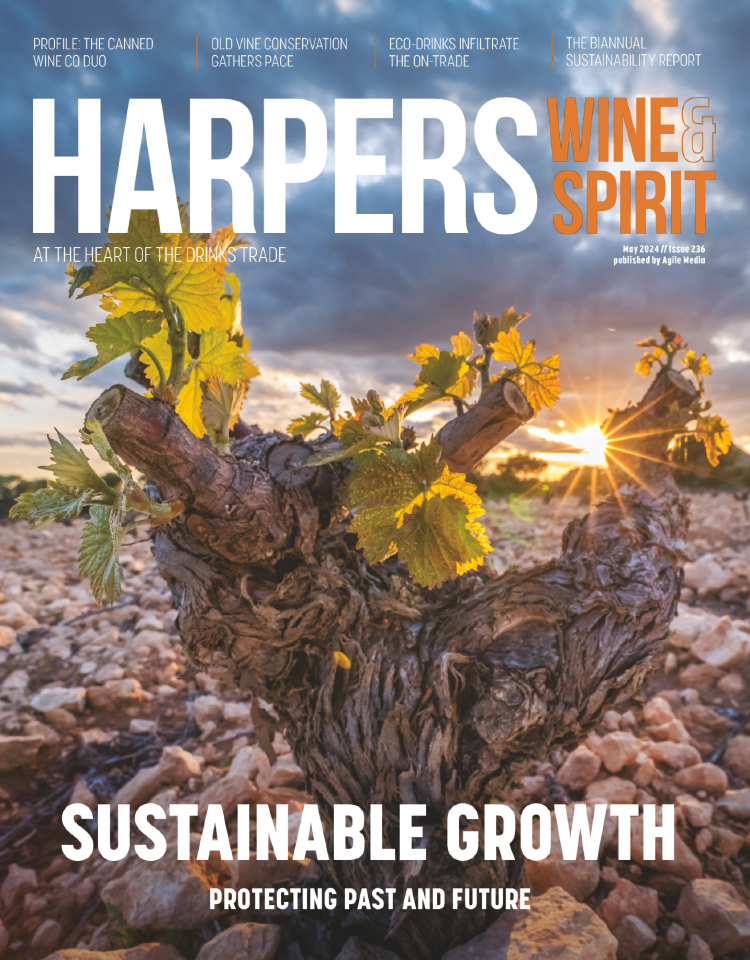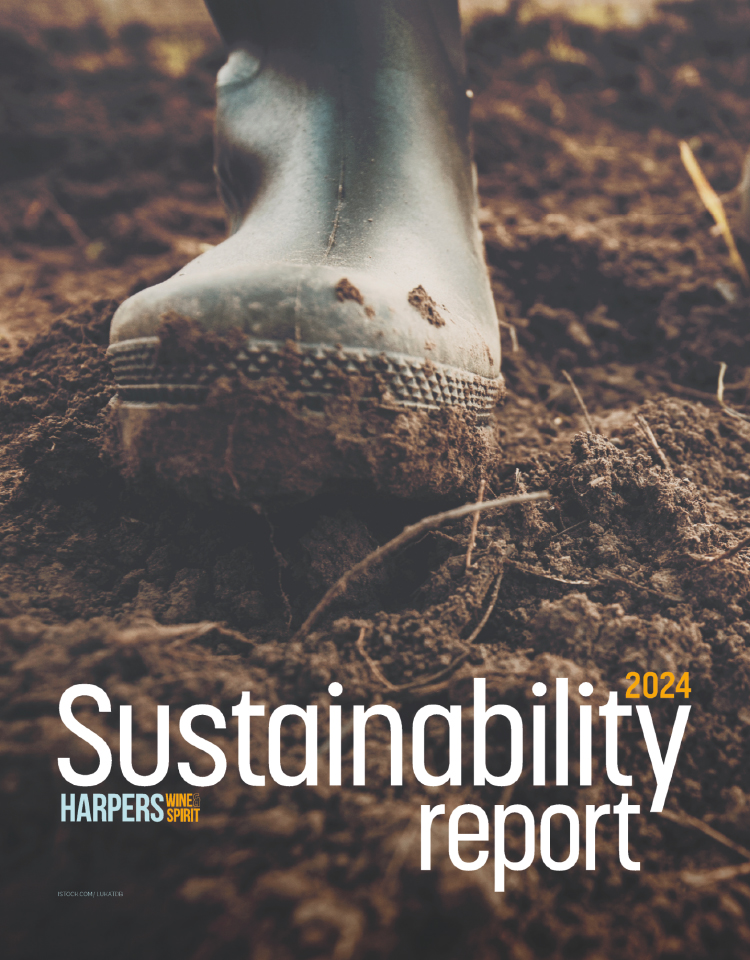
Sizing up the options on the high street
Are all high-street wine shops doomed to go the way of Oddbins and Majestic? Chris Wilson takes the pulse of the independent wine trade
Oddbins’ closure in February – and the more recent news from Majestic HQ that it plans to close a number of stores and is looking at re-branding its business under the Naked Wines umbrella later this year – has unsurprisingly pricked up a few ears among indies and off-trade-focused suppliers.
Many independents see this as an opportunity to grow their customer base as the chasm widens between supermarkets and their own businesses, while others are concerned that, with a lack of recognised national wine chains like Oddbins and Majestic, customers will lose that stepping stone between supermarkets and indies.
“I think the independent sector is well positioned to take advantage and is already doing so,” notes Phil Innes, founder and manging director of Loki Wines. “Majestic was being squeezed on three sides: independents were offering more experiential consumer experiences; supermarkets continued to deep discount in particular at the very low end of the market; and then online, where there is margin pressure, there were some more dynamic people in the market.”
Nik Darlington, managing director of Red Squirrel, a key supplier to independents, isn’t surprised by Majestic’s announcement, but does feel that the off-trade landscape will be a poorer place without it in its current guise. “Majestic is a touch staid, but it remains a brand with a lot of residual loyalty and goodwill. It’s able to cut through younger, older, urban and provincial demographics,” he says.
↓
Taking it to the streets
Majestic’s “big strategic error”, in Darlington’s view, was to go down the own-label route to the extent that they narrowed the gap between themselves and the supermarkets, while also widening the gap between themselves and the traditional wine merchant.
The move has played into the hands of indies by offering an even starker difference between themselves and Majestic, at a time when indies are increasingly having to find new ways to trade anyway as customer expectations change and opportunities arise to operate a more hybrid model – be that by offering a drink-in service, or through events and pop-ups.
“The number of independents we work with who only have shelves with bottles of wine on them is dwindling,” says Darlington, who believes that, for the most part, independent wine merchants need to diversify. “The extent of diversification will vary widely, on a spectrum from simply a broader product range to the whole-hog hybrid model. Some won’t need to for reasons of competition (or lack thereof), the right demographic, or a certain heritage and renown,” he says.
One merchant which has had success by cutting back on its shelving and SKUs to create room for an in-store wine bar – complete with state-of-the-art beer and wine cellar – is Cambridge’s Thirsty, which has also made a name for itself locally by moving beyond the bricks and mortar of its high-street venue with pop-up events, such as summer and winter beer gardens.
“We’ve turned our business into more of a bar-led one than a retail one,” says owner Sam Owens. “Getting out and about with various event formats, as well as placing our wine retail offering amongst a much broader offering that might include craft beer, coffee, food – with drink-in a more important component than take out – has really helped.”
He says the biggest advantage of running or taking part in events is increased visibility, and the fact that as a business you are seen locally to be doing something different and unconventional.
It’s a similar story with Loki Wines, where Innes and his team have a packed events calendar offering winemaker tastings, wine dinners, gin tastings and pop-ups with leading street-food providers.
“All of this adds an extra element and can pull in a different crowd to our usual clientele. It is great marketing and exposes us to people who may have not heard of us,” says Innes.
Other merchants we spoke to, such as The Oxford Wine Company, are less focused on doing things differently, believing that in order to stay relevant on the high street, customer service and product range remains the most important thing. “I am sceptical about diversification as the solution,” says Ted Sandbach, the company’s managing director. “I feel it is best to do one thing really well rather than make a token effort to diversify. For the independent sector, that means quality staff and products, and we are doing everything we can to provide the best possible service as a traditional independent wine merchant.”
It’s a view shared by Dave Eglington of Wolseley Wine Loft, whose main priority is getting customers into the shop. “Our customers want to see us in the shop and talk about all things wine, not for us to be away at events every weekend,” he says. He has recently hooked up with a local cycling club, however, to organise rides that depart from the shop, which is a way of “getting customers who may not have ordinarily visited the shop through the door, breaking down barriers and building relationships.”
Whether it’s simple moves like this to increase awareness and footfall, or bolder steps like hosting wine and beer festivals and pop-ups, many indies are treading new ground when it comes to business. Whatever happens with the likes of Majestic over the coming months, this type of diversification is here to stay.
Is the future of wine sales online?
Sam Owens:
For smaller specialists who diversify away from a purely retail game, there will always be a place on the high street. You can’t taste or drink a wine online, after all. And nor can you fully replace the experience of dealing with a real, live human being standing next to you and talking to you about what you like and what they can offer you.
Nik Darlington:
In order to do online properly – and I speak from experience – you need to invest as much as you would opening an actual shop. Indeed I would suggest even more, because the competition is fierce. And online shopping can ultimately commoditise the experience. So yes, online shall grow and grow, and some traditional indies are already doing a good trade online while others will grow that side more in years to come. But for indies to stand out and thrive, increasingly that means offering a unique experience. And that’s hard to do online rather than in person.
Ted Sandbach:
For those who wish to treat wine as a commodity and avoid the hassle, buying online makes sense. However, there will always be people who want to touch, look at and talk about the bottle. They want a confident rapport with their local wine merchant.





